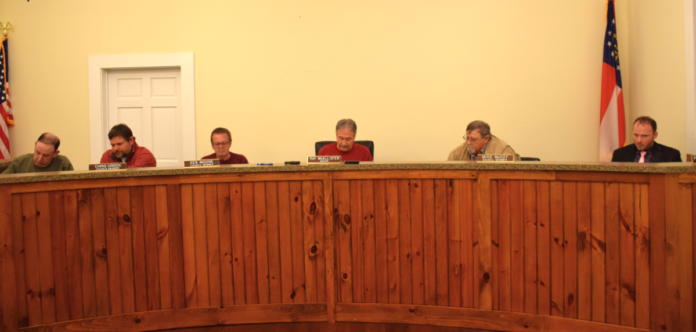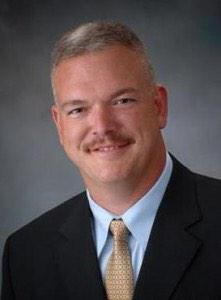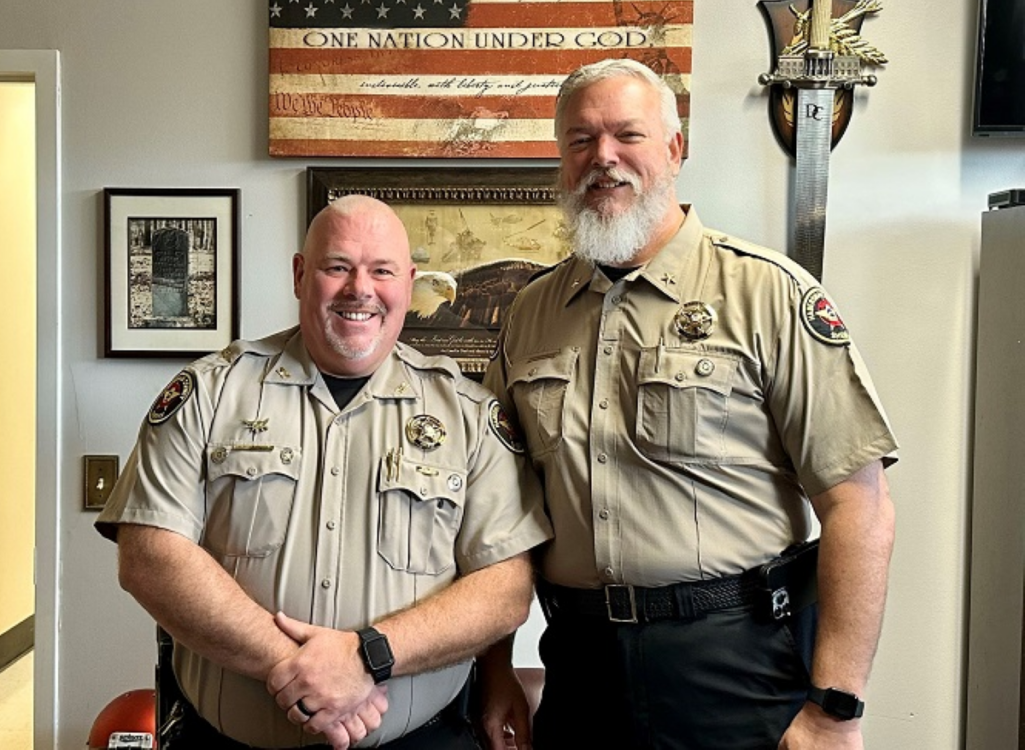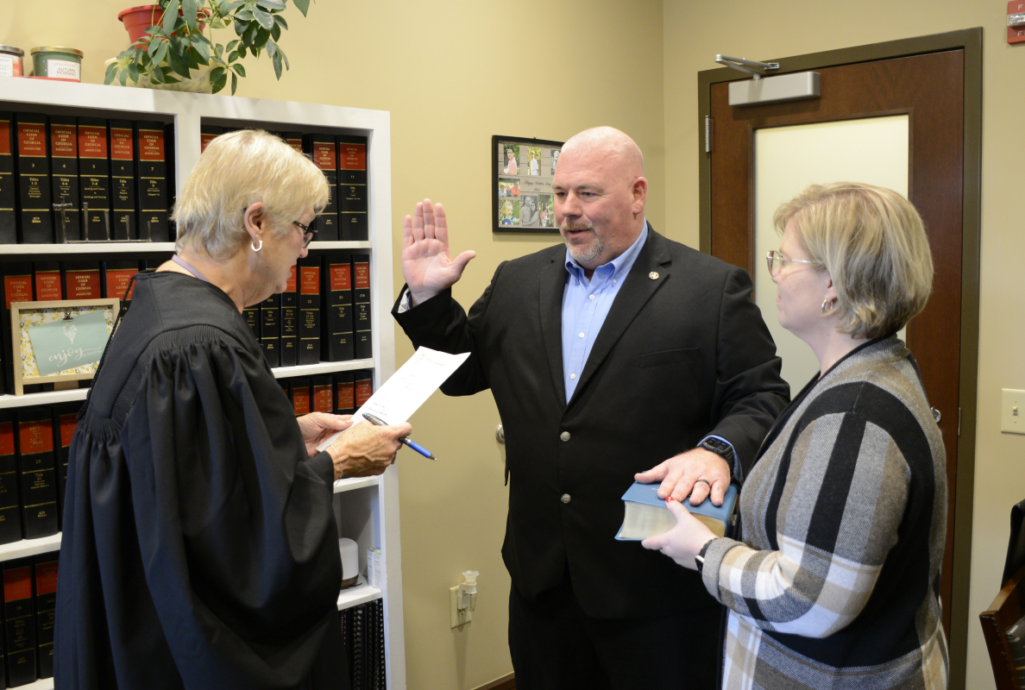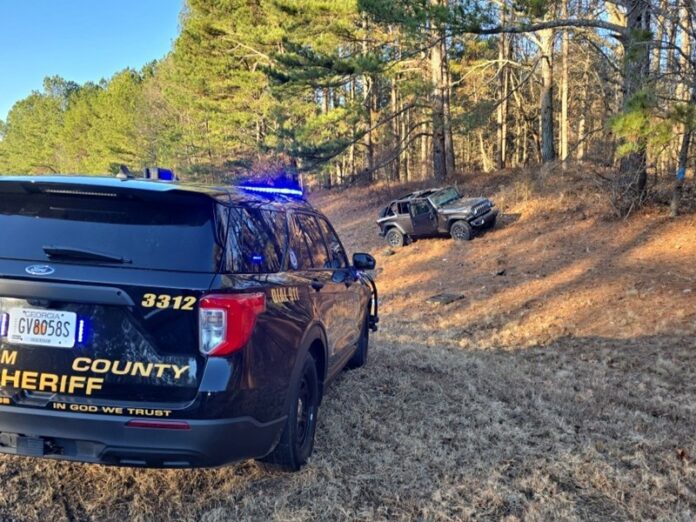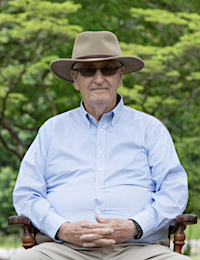A man is sleeping on the ground next to a bus stop wrapped in a blanket when he is spotted by a police officer.
A City of Las Vegas Marshal notices the 55-year-old while patrolling near the Fremont Street Experience in Downtown Las Vegas on a recent November morning, according to the police report.
Officer James Blaisure determines the man is unhoused and violating an expanded ban passed by the city council earlier in the month that restricts camping or lodging citywide even if there aren’t available shelter beds.
The officer sees the man’s walker covered in clothes next to him as he sleeps. Blaisure unwraps his blanket and tells him he cannot sleep there.
The man is asked if he has been to the Courtyard Homeless Resource Center, roughly a mile away that can accommodate up to 550 people with a sleeping mat at night.
He tells the officer “he was going to make his way over there eventually,” according to the police report.
It was the second time in a week that officers had warned him for the same offense – camping or lodging without consent, a misdemeanor that could carry a $1,000 fine.
Experts and advocates suspect such encounters are on the rise following a U.S. Supreme Court ruling in June that cities don’t violate the 8th Amendment’s restriction on cruel and unusual punishment when they criminalize those experiencing homelessness for sleeping outside even if there aren’t other adequate accommodations for them to go.
The National Homeless Law Center tracked cities that have passed anti-homeless camping bans or expanded existing camping bans to make them more punitive since the high court’s decision. It found 99 ordinances were passed in 26 states that restrict unhoused people from sleeping and camping, according to data it provided to States Newsroom in November.
Another 66 ordinances were pending at the time.
But with homelessness rising, driven by the lack of affordable housing, low wages, and limited access to social services among other factors, advocates say the court decision stands to worsen an issue that has become more politicized in recent years.
“Every bill is a little bit different,” said Jesse Rabinowitz, the communications and campaign director for the National Homelessness Law Center. “The main two things they all have in common are that none of them solve homelessness and all of them will make homelessness worse.”
A full report from the law center on recent criminalization trends is expected to be released in early 2025.
Roughly a third of all camping bans the National Homeless Law Center has tracked since July were passed in California, the state with the largest homeless population.
Illinois had the second highest with 13 ordinances, all that featured language crafted by the Illinois Municipal League.
Eric Tars, senior policy director at the National Homeless Law Center, said there is a common refrain across cities adopting ordinances with local officials saying “it’s not our intent to criminalize people experiencing homelessness.”
The camping bans passed in Illinois cities start with a $75 fine, a hefty price for someone experiencing homelessness. The cost can increase each time.
Violating camping bans could result in a $50 fine in Merced, California and a $100 fine in Phoenix, Arizona.
A West Virginia city expanded a ban in September, prohibiting camping and storing personal property in public spaces, West Virginia Watch reported. Morgantown officials set penalties ranging from fines of $200 to $300 for second and third offense as well as possible jail time.
Kinsburg, California has fines up to $500. Similar to Las Vegas’ fine, ordinances passed in some California cities like Fresno, Indio and Hemet could come with up to $1,000 fines.
Las Vegas City Marshals, which oversee public safety and enforcement on city-owned property, issued citations to three unhoused people sleeping near the Fremont Street Experience in November.
In addition to a potential $1,000 fine, the 55-year-old man also faces up to six months in jail after his 2025 court date. In an email, a Las Vegas official said that it’s up to the judge to decide whether to implement the full amount.
Unhoused people who are arrested under many of these new ordinances could also face jail time ranging from 10 days to a year, the law center reported.
In the Illinois cities that passed similar camping bans, jail time is possible if someone violates the ordinances more than six times in a two-year period.
Not all the bans tracked in the last five months are new, but some have been amended to be more restrictive following the Supreme Court ruling, according to the law center.
Cities including Las Vegas; Oceanside, California; Paso Robles California; Bremerton, Washington; and Auburn, Washington all updated existing camping and sleeping bans in recent months to remove provisions that prevented enforcement if shelter beds weren’t available.
When passing these ordinances, Tars said officials often “try to assuage their conscience and say things like ‘we want to push them into services’ or ‘we’re working on other shelters.’”
“Things like those will take longer, if ever,” he said. “The camping ban they pass goes into effect immediately. Even without those services they’re already moving toward enforcement. That’s the only piece they prioritize. That really tells you what their priorities are.”
Public pressure to do more
The U.S. Department of Housing and Urban Development found that nationally 654,104 people experienced homelessness on a single night in 2023, a 12% increase from the previous year.
The numbers are largely viewed as an under count as the method of counting individuals on a single January night comes with challenges and an already transient population can easily fall through the cracks.
Marcy Thompson, vice president for programs and policy at the National Alliance to End Homelessness, said data doesn’t give a full picture of homelessness.
“If you just look at that data, it’s easy to assume that things aren’t working and that homelessness response systems aren’t doing their job, or that resources aren’t being spent appropriately,” Thompson said. “What you don’t see in those numbers are things like, how many people are becoming homeless each year for the first time.”
Low wages not keeping up with the cost of rent, the lack of access to health care and mental health resources and systemic racism have all contributed to the homeless crisis, she said.
On the list of policy issues that contribute to homelessness, Thompson said the lack of affordable and available housing nationwide is at the top.
The American Rescue Plan Act of 2021, signed into law by President Joe Biden, provided cities and states with an historic, one-shot infusion of flexible dollars that some used to address housing shortages or stand up homeless resources.
Lauren Lowery, the Housing and Community Development director with the National League of Cities, said those funds resulted in “$6.7 billion for housing-related expenditures, which is like over 10 years of the home investment block grant.”
ARPA dollars were “very significant about helping cities to address those at risk for homelessness and those experiencing homelessness as well,” she said.
But the investments, while significant, were never enough, Thompson said.
“There isn’t sufficient housing,” she said. “As homelessness becomes more visible, there’s often a lot of public pressure to do something.”
The law center said of the 187 cities previously surveyed in recent years they found that each one had “at least one, if not multiple, laws criminalizing homelessness in some form,” Tars said.
In 2023, Georgia lawmakers passed a bill that mandates local governments to enforce ordinances prohibiting unauthorized public camping and sleeping on sidewalks and other public spaces, the Georgia Recorder reported. The measure also requires an audit of how public funding is used for programs to help people experiencing homelessness.
Gov. Bill Lee allowed a Tennessee law banning camping on public property to take effect without his signature in 2022, calling for the need to seek solutions to address homelessness, the Tennessee Lookout reported.
“Almost nowhere in America can you do all of the activities that you and I do every day and take for granted,” Tars said. “Eating, sleeping, resting, sitting. We’re all sitting right now. If we were doing that and we were homeless and doing that outside in a public space, it might be considered a crime.”
There were attempts to limit punitive measures.
Arizona Gov. Katie Hobbs vetoed Republican-sponsored legislation in 2023 that would have made it illegal for unhoused persons to camp in public spaces. And the Missouri Supreme Court struck down that state’s public camping ban on a technicality.
An appellate court in 2022 ruled in favor of unhoused people who sought to overturn city ordinances passed in Grants Pass, Oregon, that restricted and fined people for sleeping and camping in public even though there aren’t other places to go.
Many Western cities within the jurisdiction of the court submitted amicus briefs the following year asking the Supreme Court to overturn the decision. Many argued their hands were tied to address homelessness because of the federal court’s ruling.
Anit Jindal, an attorney representing the League of Oregon Cities, wrote in a brief that the 9th Circuit U.S. Court of Appeals’ decision limits “the tools available to local governments for tackling this complex and troubling human issue.”
“When we talk to cities about the need to build housing or the need to fund outreach or services, they say cities can’t move quickly because government is slow,” Rabinowitz said. “They have moved very, very quickly to pass these bills that make homelessness worse.”
Even as the federal court’s ruling stood, cities carried out encampment removals and adopted carefully worded ordinances to criminalize sleeping in a public right of way but only when shelter beds weren’t available.
In a 6-3 ruling this June, the Supreme Court reversed Johnson v. City of Grants Pass paving a way for cities to adopt camping and sleeping restrictions.
In a statement to States Newsroom, Jeff Olivet, executive director of U.S. Interagency Council on Homelessness, said cities are facing a difficult decision when it comes to the rising number of encampments.
“Encampments raise significant, legitimate concerns about the health and safety of neighborhoods and local businesses,” he said. “However, the criminalization of homelessness is ineffective, expensive, and inhumane. Housing and health care, not handcuffs and fines, solve homelessness.”
An uncertain future
In the days following his re-election, Republican Donald Trump vowed in his second term to “use every tool, lever and authority to get the homeless off our streets.”
Trump proposed an urban camping ban. He said he would “open up large parcels of inexpensive land” and “create tent cities where the homeless can be relocated and their problems identified.” He plans to bring in doctors, social workers and job rehab specialists.
The threat of a national camping ban from Trump isn’t new and something he spoke about during his first term.
Before the Grants Pass decision, the 9th Circuit ruled in the 2018 case Martin v. Boise that cities can’t punish people for sleeping on the streets if there isn’t any alternative shelter.
The Supreme Court declined to review the case in 2019.
Tars said the court’s decision might have prevented Trump from pursuing aggressive plans toward pressuring cities to enact punitive measures toward the unhoused.
“Now that the Supreme Court has overturned the Martin v. Boise principle in the Grants Pass case, that has basically paved the way for him to pick up right where he left off, only bigger, better and worse,” Tars said.
There are still mounting questions around what legal authority Trump would have federally to criminalize homelessness.
Thompson said there are other ways the federal response to homelessness and the housing crisis could change in a second Trump term.
When awarding grants, HUD gives points to “communities who are demonstrating that they are not criminalizing homelessness,” she said.
“Another administration could choose to take those points away or offer those points for something else, right?” she added.
HUD isn’t the only department that could change how it approaches homelessness.
“We’ve seen the Department of Justice over the years provide guidance around the importance of not criminalizing,” Thompson added. “We’ve seen guidance around good first responder and community partnerships that are housing focused from Department of Justice. We’ve seen them speak out against community and state level tactics that have been enforced.”
Those guidances, she added, could change and push more punitive tactics.
Even who is appointed to agencies could impact the direction the federal government takes to address homelessness, Rabinowitz said.
The 2019 pick to head the U.S. Interagency Council on Homelessness, Robert Marbut, had been against housing first strategy.
While it is still unclear about a second Trump administration, Rabinowitz said early indicators show that Trump could “force more people into homelessness by gutting further the social safety net.”
“Once people are homeless, they (Trump administration) have no plan to address it other than literally rounding people up and putting them in detention camps,” he added.
‘Little daylight between Republicans, Dems
Although many are worried about what a more punitive approach to homelessness could look like under Trump and a Republican-controlled Congress, Tars said it’s not just Republicans who have embraced harsh stances toward the unhoused.
“Democratic mayors, governors, people who should know better, are aligning themselves with the same position that Trump is taking,” he said.
One example Tars points to is California’s Democratic Gov. Gavin Newsom, who signed an executive order less than a month after the Supreme Court decision around encampments.
The directive orders state agencies to remove an encampment if they determine it “poses an imminent threat to life, health, safety or infrastructure” and if feasible to remove the encampment. The order requires notices be posted 48 hours prior to an encampment removal.
Following the directive, Newsom said “there is now no excuse” not to clean out encampments.
Tars warned moving people out of encampments isn’t easy, especially if there isn’t enough housing or shelter space for people to go. He warned the method to remove people could lead to more people ending up in jail.
Rabinowitz said Newsom’s push to clear out encampments shows “there’s often little daylight between what Democrats like (Gov.) Gavin Newsom and what far right extremists like Donald Trump want to do in regards to homelessness.”
The governor’s office declined to answer questions about whether the directive could push more unhoused people into the criminal legal system or how the effectiveness of the directive is being monitored.
In a statement to States Newsroom, the office said “Governor Newsom’s stance is not to ‘forcibly remove’ homeless encampments or people.”
“We cannot comment on hypotheticals for the next administration or policies which have not yet been enacted, but California always stands ready to protect the best interests of our state and people,” said Tara Gallegos, a spokeswoman for the governor. “California will continue to advance person-centered approaches to help people access help, shelter, and affordable housing options.”



